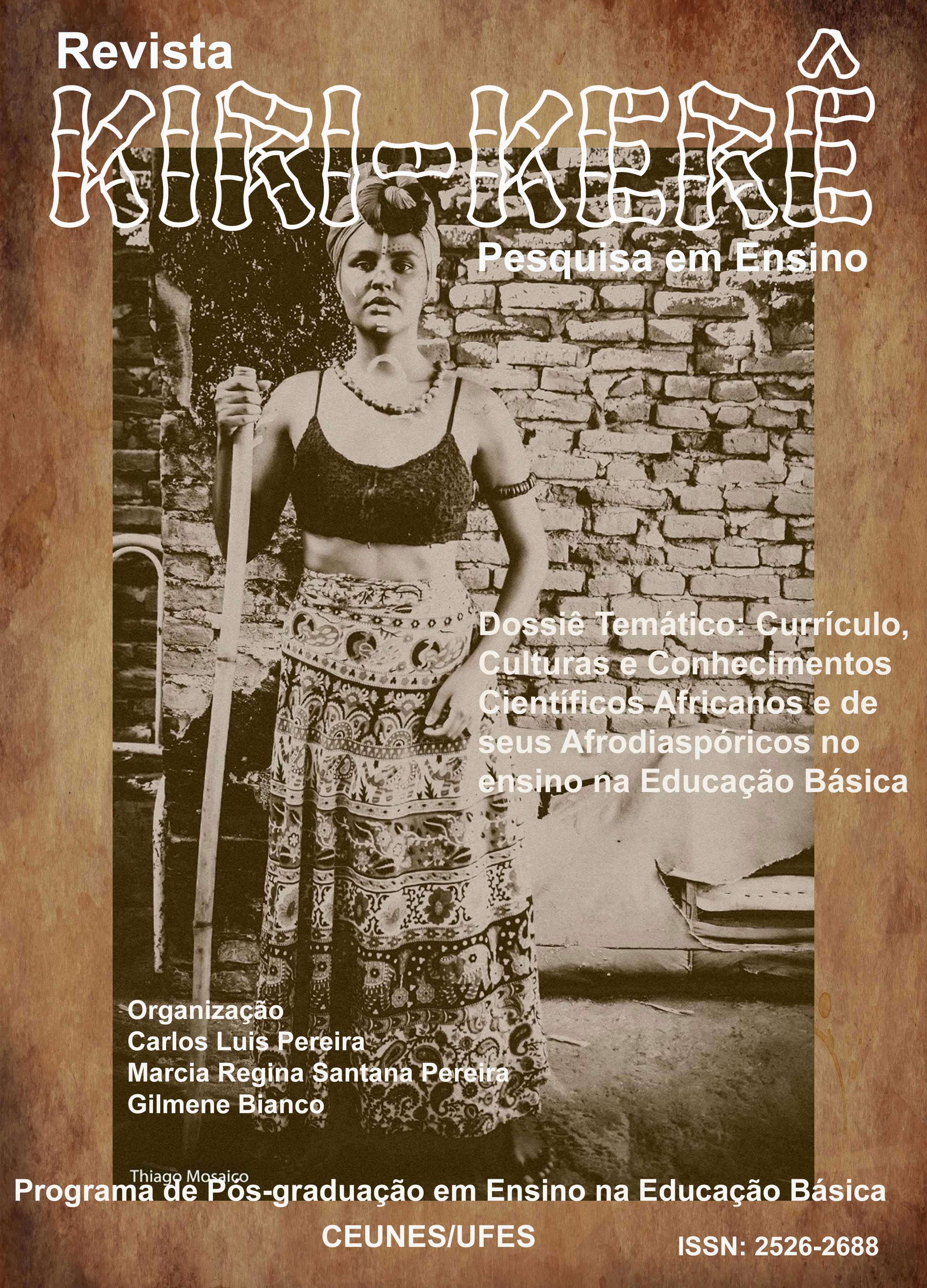Role of law 10,639 in the formation of historical consciousness in basic education students:
the impact of the invisibilization of the Mbundu people of Angola in elementary school textbooks
DOI:
https://doi.org/10.47456/krkr.v1i19.43034Keywords:
Law 10,639/03; Bncc; Elementary education; Black diaspora; Mbundu of AngolaAbstract
This article analyzes the role of law 10,639 and the invisibilization of the legacies of the Mbundu people in Elementary School History books, through the formation of students' historical awareness, focusing on those who represent the African Black Diaspora in Brazilian society, due to the fact of being the most affected by the impact of social self-amnesia, due to the lack of knowledge of their ancestral past. And at the same time, it problematizes the partiality on the part of the National Common Curricular Base in the weak materialization of law 10,639, which we deduce is motivated by racial issues, since the majority of teaching content is European. Methodologically, we adopted analytical and descriptive research, through a qualitative approach, which deals directly with the issues and problematizations surrounding the field of multidisciplinary studies in Education, Linguistics and Cultural History. Therefore, teaching the history and culture of Central African and Black Diaspora peoples in schools is contributing to a new anti-racist historical consciousness.
Downloads
References
Este artículo analiza el papel de la ley 10.639 y la invisibilidad de los legados del pueblo Mbundu en los libros de Historia de la enseñanza primaria, a través de la formación de la conciencia histórica de los estudiantes, centrándose en quienes representan la diáspora negra africana en la sociedad brasileña, debido a que de ser los más afectados por el impacto de la autoamnesia social, debido al desconocimiento de su pasado ancestral. Y al mismo tiempo, problematiza la parcialidad por parte de la Base Curricular Común Nacional en la débil materialización de la ley 10.639, lo que deducimos está motivado por cuestiones raciales, ya que la mayoría de los contenidos docentes son europeos. Metodológicamente, adoptamos una investigación analítica y descriptiva, a través de un enfoque cualitativo, que aborda directamente las cuestiones y problematizaciones que rodean el campo de los estudios multidisciplinarios en Educación, Lingüística e Historia de la Cultura. Por lo tanto, enseñar la historia y la cultura de los pueblos centroafricanos y de la diáspora negra en las escuelas está contribuyendo a una nueva conciencia histórica antirracista.
Downloads
Published
Issue
Section
License
Copyright (c) 2024 ABEL CALOMBO QUIJILA

This work is licensed under a Creative Commons Attribution-NonCommercial 4.0 International License.
The authors accept, when sending their works, the assignment of their copyrights.

